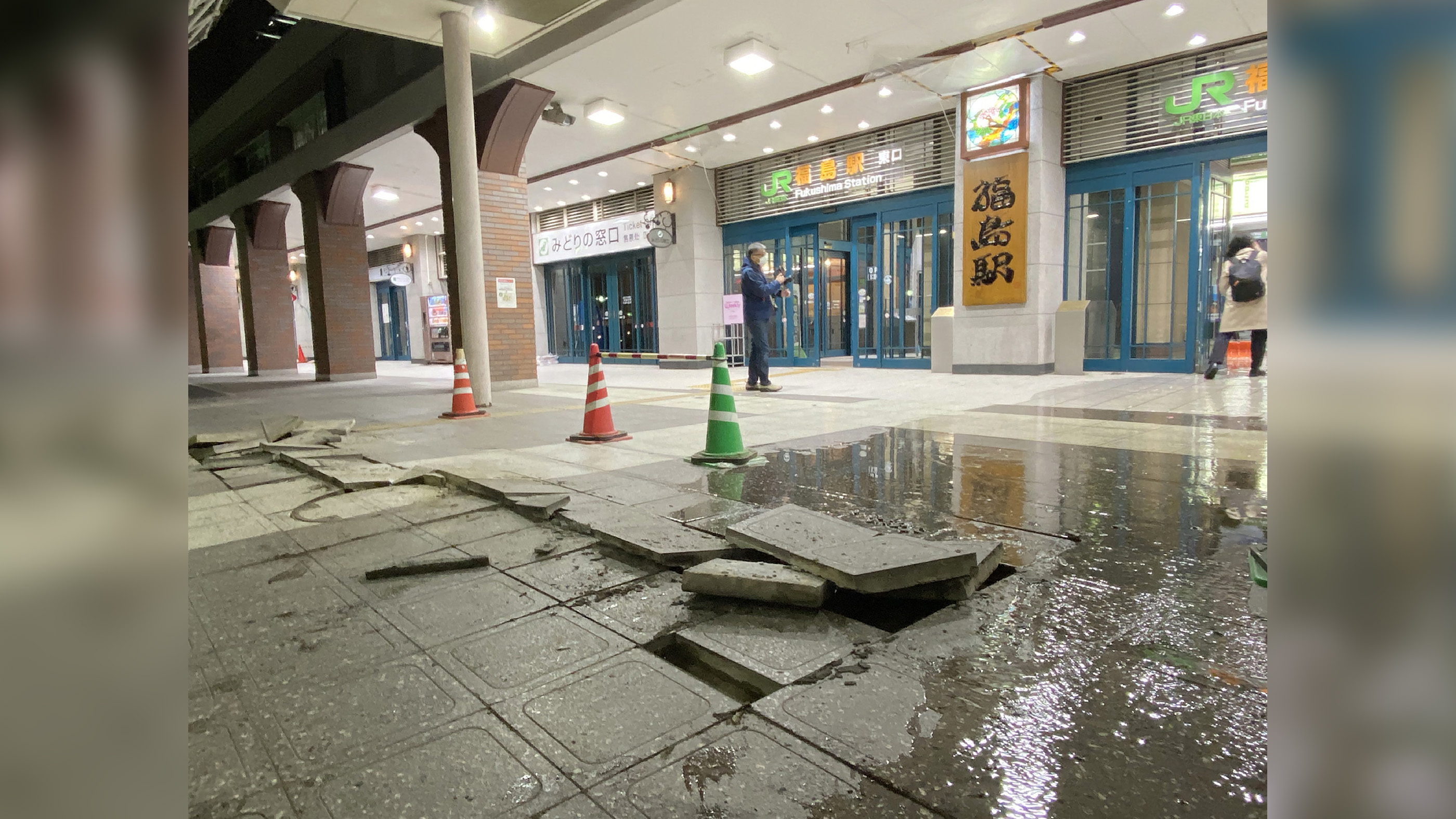Magnitude-7.3 earthquake strikes Fukushima, tsunami warning issued
Roughly 2 million homes have been left without power.

Get the world’s most fascinating discoveries delivered straight to your inbox.
You are now subscribed
Your newsletter sign-up was successful
Want to add more newsletters?

Delivered Daily
Daily Newsletter
Sign up for the latest discoveries, groundbreaking research and fascinating breakthroughs that impact you and the wider world direct to your inbox.

Once a week
Life's Little Mysteries
Feed your curiosity with an exclusive mystery every week, solved with science and delivered direct to your inbox before it's seen anywhere else.

Once a week
How It Works
Sign up to our free science & technology newsletter for your weekly fix of fascinating articles, quick quizzes, amazing images, and more

Delivered daily
Space.com Newsletter
Breaking space news, the latest updates on rocket launches, skywatching events and more!

Once a month
Watch This Space
Sign up to our monthly entertainment newsletter to keep up with all our coverage of the latest sci-fi and space movies, tv shows, games and books.

Once a week
Night Sky This Week
Discover this week's must-see night sky events, moon phases, and stunning astrophotos. Sign up for our skywatching newsletter and explore the universe with us!
Join the club
Get full access to premium articles, exclusive features and a growing list of member rewards.
A tsunami warning has been issued for Fukushima after a powerful 7.3-magnitude earthquake struck the east coast of Japan, according to Japanese government officials.
In a translated announcement, the Japan Meteorological Agency said the quake hit 36 miles (60 kilometers) below the sea at roughly 11.30 p.m. local time on Wednesday (March 16), shaking buildings in Tokyo, knocking people off their feet, and leaving 2 million homes without power. The agency has issued a tsunami warning that waves of up to 3 feet (1 meter) could hit the Miyagi and Fukushima prefectures.
Fukushima was the location of the worst nuclear accident since Chernobyl after a magnitude 9.0 earthquake and a subsequent tsunami struck the region's nuclear power plant in 2011. The earthquake and tsunami in Japan killed roughly 20,000 people and destroyed more than 120,000 buildings. The tsunami brought down the electrical grid connected to the Fukushima Daiichi nuclear power plant, shutting off its cooling system, causing meltdowns in three of the plant's six reactors, and flushing radioactive material out into the ocean.
Related: Chernobyl vs. Fukushima: Which one was the bigger nuclear disaster?
Fumio Kishida, the Japanese prime minister, wrote on Twitter that the government was working to assess the extent of the damage caused by the earthquake, but warned citizens to "Take action to save your life first."
So far, no casualties have been reported in the aftermath of the quake. The Tokyo Electric Power Company, which runs the no-longer-active Fukushima nuclear plant, wrote on Twitter that it was currently investigating the impact of the earthquake on its facilities, but that workers had found no abnormalities at the site. There have also been no reports so far of damage at the Onagawa nuclear power plant in Miyago Prefecture, according to the Tohoku Electric Power company.
While the initial danger appears to be over, Japan's Chief Cabinet Secretary, Hirokazu Matsuno, warned citizens to remain vigilant for dangerous aftershocks.
Get the world’s most fascinating discoveries delivered straight to your inbox.
"There is a possibility that another earthquake as strong as an upper 6 could strike in the next week or so," Matsuno said in a press conference. "We need to be on alert."
Originally published on Live Science.

Ben Turner is a U.K. based writer and editor at Live Science. He covers physics and astronomy, tech and climate change. He graduated from University College London with a degree in particle physics before training as a journalist. When he's not writing, Ben enjoys reading literature, playing the guitar and embarrassing himself with chess.
 Live Science Plus
Live Science Plus





